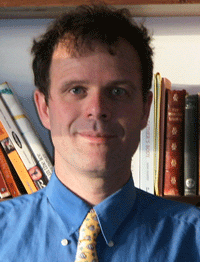- Popper's Response to Dingle on Special Relativity and the Problem of the Observer (2010) [Updated 7 years ago]
- The Ideology of Relativity: The Case of the Clock Paradox (2009) [Updated 1 decade ago]
- Popper's Response to Dingle on Special Relativity and the Problem of the Observer (2010) [Updated 7 years ago]
Dingle contended that Einstein's special theory of relativity was physically impossible for the simple reason that it required clocks to be simultaneously faster and slower than each other. McCrea refuted Dingle using an operationalist argument. An operational response did not satisfy Popper, who wrote an unpublished essay to counter Dingle's claim. Popper developed an analysis that avoided operationalism by using a system of coinciding clocks, contending that this system showed special relativity withstood Dingle's criticism that it was not a symmetrical and consistent physical theory. However, Popper mistakenly included an asymmetric calculation in his analysis. Once this is corrected, the amended result supports Dingle's position. Popper went on to argue that to avoid determinism, special relativity had to be reconciled with absolute time; this too supports Dingle. Popper's failure to refute Dingle calls into question his claim that ?the observer' is superfluous to special relativity.
- The Ideology of Relativity: The Case of the Clock Paradox (2009) [Updated 1 decade ago]
In the interwar period there was a significant school of thought that repudiated Einstein's theory of relativity on the grounds that it contained elementary inconsistencies. Some of these critics held extreme right-wing and anti-Semitic views, and this has tended to discredit their technical objections to relativity as being scientifically shallow. This paper investigates an alternative possibility: that the critics were right and that the success of Einstein's theory in overcoming them was due to its strengths as an ideology rather than as a science. The clock paradox illustrates how relativity theory does indeed contain inconsistencies that make it scientifically problematic. These same inconsistencies, however, make the theory ideologically powerful. The implications of this argument are examined with respect to Thomas Kuhn and Karl Popper's accounts of the philosophy of science.



